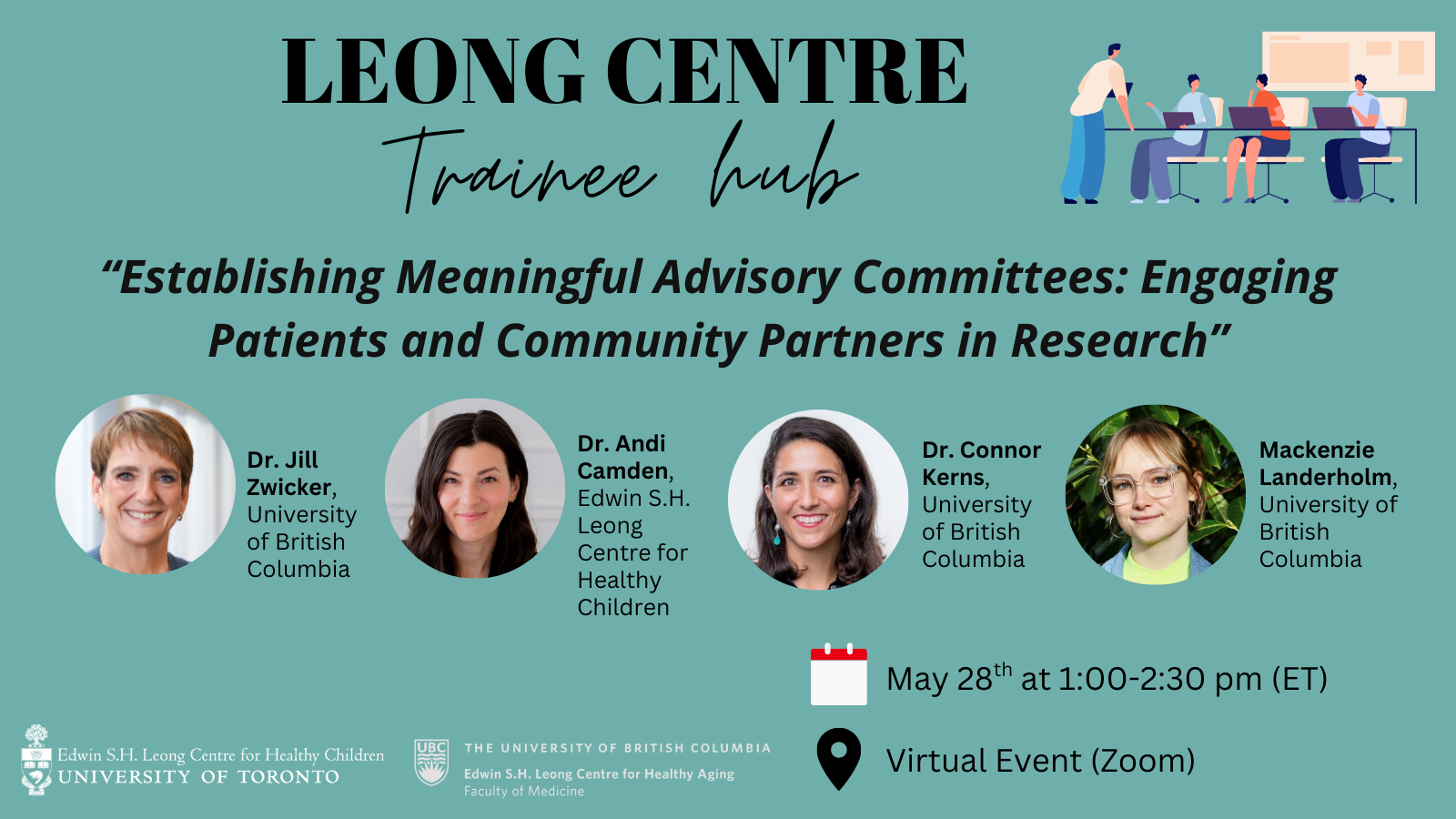Trainee Hub Event: Establishing Meaningful Advisory Committees
DATE: May 28, 2025
TIME: 1:00 – 2:30pm (ET)
METHOD: Virtual
REGISTRATION: https://forms.office.com/r/JzpvXMGrLQ
We are pleased to partner with the Edwin S.H. Leong Centre for Healthy Aging for this Trainee Hub session.
SPEAKERS:
Andi Camden, PhD, MPH, is an Epidemiologist and Senior Research Associate at the Edwin S.H. Leong Centre for Healthy Children at the Hospital for Sick Children, as well as an ICES Fellow. Her research focuses on leveraging administrative data to explore the impact of opioids during pregnancy on maternal and child health across the life course. She is currently leading the Canadian Perinatal Opioid Project alongside Dr. Astrid Guttmann and Dr. Hilary Brown.
Connor Kerns, PhD, is an Associate Professor, Registered Psychologist and Director of the Anxiety Stress and Autism Program (ASAP) in the Department of Psychology at the University of British Columbia. Her research focuses on anxiety, and stress-related disorders in autistic youth and young adults with the aim of developing and testing new assessment tools and psychotherapies.
Mackenzie Landerholm has been working with the University of British Columbia's Anxiety Stress and Autism Program (ASAP) Lab for two years, facilitating their Community Advisory Board. She has also worked as an inclusion supervisor and a support worker for Autistic adolescents and adults with intellectual disabilities.
TITLE: Establishing Meaningful Advisory Committees: Engaging Patients and Community Partners in Research
DESCRIPTION: Patient and community advisory committees play an important role in research by ensuring that projects are grounded in the experiences of those most impacted, including patients, families, and community partners. In this session, a panel of experts will discuss how to form advisory groups that meaningfully contribute to research. Topics will include timing, strategies for authentic engagement, and structuring collaborative committees. Panelists will share real-world examples from their work, highlighting how they support and sustain partner involvement throughout the research process. Whether you are starting a new committee or looking to strengthen an existing one, this session will offer practical tools and insights.
OBJECTIVES:
- Identify key considerations for establishing a patient and community advisory committee, including the right timing and structure.
- Describe best practices for fostering authentic engagement and collaboration with patient, family, and community partners.
- Learn from real-world case examples of advisory committees and apply strategies to strengthen advisory groups in research.

Contact
Knowledge Mobilization and Community Engagement Specialist
Edwin S.H. Leong Centre for Healthy Children
